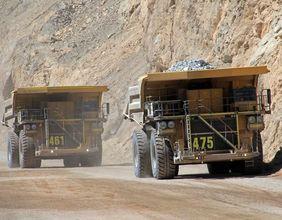Highlights
- UK and US finalize key tariff-reducing trade pact
- Car and steel exports from UK to US set for major boost
- Broader market impact expected across ASX200 stocks
At the recent G7 Summit in Canada, UK Prime Minister Keir Starmer and US President Donald Trump confirmed the implementation of a significant bilateral trade deal. The long-discussed agreement aims to unlock trade between the two economies, particularly benefitting the automotive, aerospace, and steel sectors. With far-reaching implications for global exporters and companies with cross-border interests, the move is set to stir renewed attention among investors watching ASX200 stocks.
Key Details of the Agreement
The trade accord includes a major reduction in US tariffs on British imports. Notably, tariffs on UK-made cars exported to the US will be slashed to 10% from the previous 27.5%—applicable to the first 100,000 vehicles shipped annually. This is expected to enhance competitiveness for UK-based auto manufacturers, including ASX200-aligned stakeholders such as GKN Aerospace (ASX:GKN), which supplies parts and systems to major car and aerospace manufacturers globally.
Additionally, levies on UK steel exports to the US are being reduced from 25% to zero, further supporting industrial players like BlueScope Steel (ASX:BSL). This provides cost relief and boosts volume potential for Australian-linked steel firms with UK operations or customers across the Atlantic.
In exchange, the UK will offer expanded tariff-free quotas for US beef and ethanol, a move that aligns with the UK’s broader food and fuel import diversification goals.
What It Means for Australian Investors
Although the fine print of the deal continues to be ironed out, the announcement already signals momentum in transatlantic trade that could uplift companies with exposure to the UK or US manufacturing and materials sectors. For instance, BHP Group (ASX:BHP) and Rio Tinto (ASX:RIO)—both heavyweights in the ASX200 index—may benefit indirectly from increased demand for raw materials needed in automotive and construction industries spurred by improved trade conditions.
Given the trade-friendly environment, companies within the ASX200 that rely on global value chains or supply to infrastructure and mobility sectors may see fresh strategic opportunities. Broader implications also tie into ASX200 stocks with international expansion plans or those embedded in the steel and vehicle parts ecosystem.
Looking Ahead
While leaders have confirmed the deal, some terms—particularly those concerning UK steel tariffs—remain subject to ongoing negotiation. Reports suggest the final terms could be shaped by geopolitical considerations, including concerns over Chinese involvement in British Steel. However, the confirmation of this long-awaited trade framework is a constructive step that may open fresh revenue channels and reduce uncertainty across industries tied to both the UK and US.
As global markets respond, Australian firms with operations or customers in these economies may increasingly feature in strategic conversations among market participants watching for ripple effects from this high-level diplomatic accord.




